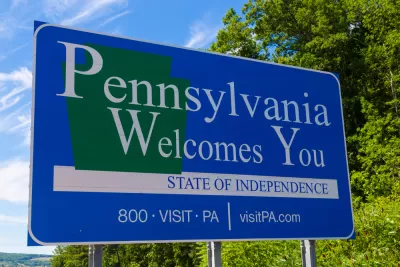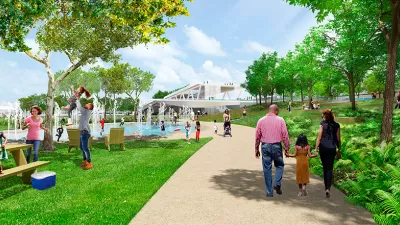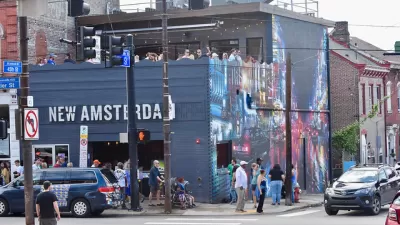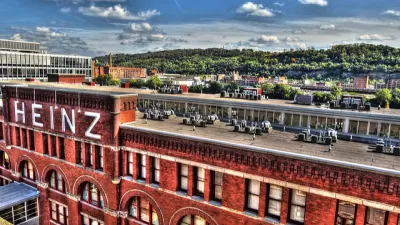After years of decline, some Pittsburgh neighborhoods are beginning to see an uptick in popularity, so the city is seeking to protect the existence of affordable housing.

For decades, Pittsburgh has been a city more associated with decline than gentrification, but the city's Lawrenceville neighborhood has seen that tide turn. "It’d already been named a world-class 'hipster neighborhood' in 2014, and home prices have tripled there over the past 15 years," Malcolm Burnley writes in a story for Next City. To make sure that Pittsburgh has the affordable housing in changing times, a group of citizens is coming together to create a community land trust.
A community land trust, or CLT, is a tool used to slow down the forces that push residents out of gentrifying neighborhoods. "Essentially, CLTs are community-controlled nonprofits that acquire parcels of land — either through municipal land banks or other inexpensive means — and maintain them at an affordable price for people in the neighborhood, such as families looking to rent or buy homes at below-market-rate prices, in perpetuity," Brunley explains. While this is the first CLT in Pittsburgh, there are already "250 communities nationwide have a CLT," the article tells us.
FULL STORY: Pittsburgh Ready to Launch City’s First Community Land Trust

Maui's Vacation Rental Debate Turns Ugly
Verbal attacks, misinformation campaigns and fistfights plague a high-stakes debate to convert thousands of vacation rentals into long-term housing.

Planetizen Federal Action Tracker
A weekly monitor of how Trump’s orders and actions are impacting planners and planning in America.

San Francisco Suspends Traffic Calming Amidst Record Deaths
Citing “a challenging fiscal landscape,” the city will cease the program on the heels of 42 traffic deaths, including 24 pedestrians.

Defunct Pittsburgh Power Plant to Become Residential Tower
A decommissioned steam heat plant will be redeveloped into almost 100 affordable housing units.

Trump Prompts Restructuring of Transportation Research Board in “Unprecedented Overreach”
The TRB has eliminated more than half of its committees including those focused on climate, equity, and cities.

Amtrak Rolls Out New Orleans to Alabama “Mardi Gras” Train
The new service will operate morning and evening departures between Mobile and New Orleans.
Urban Design for Planners 1: Software Tools
This six-course series explores essential urban design concepts using open source software and equips planners with the tools they need to participate fully in the urban design process.
Planning for Universal Design
Learn the tools for implementing Universal Design in planning regulations.
Heyer Gruel & Associates PA
JM Goldson LLC
Custer County Colorado
City of Camden Redevelopment Agency
City of Astoria
Transportation Research & Education Center (TREC) at Portland State University
Jefferson Parish Government
Camden Redevelopment Agency
City of Claremont





























